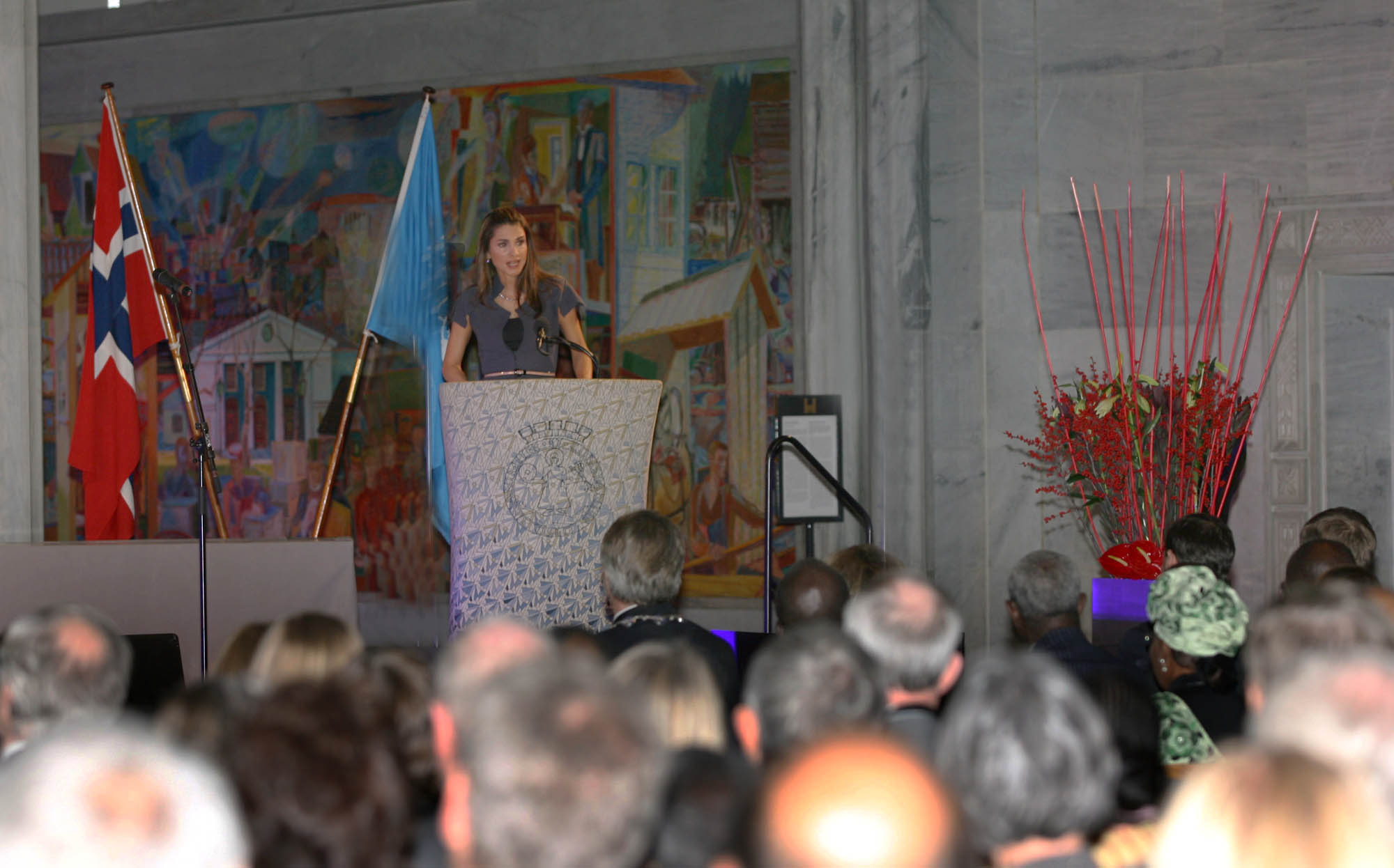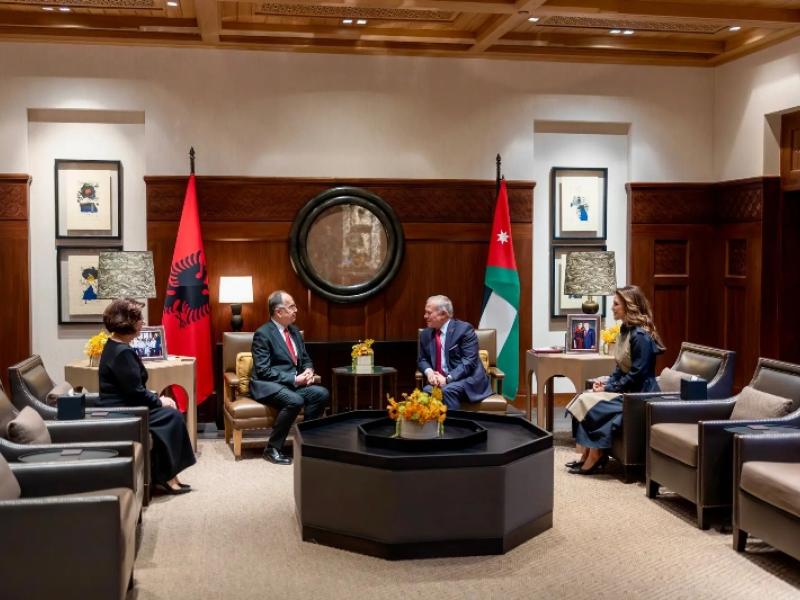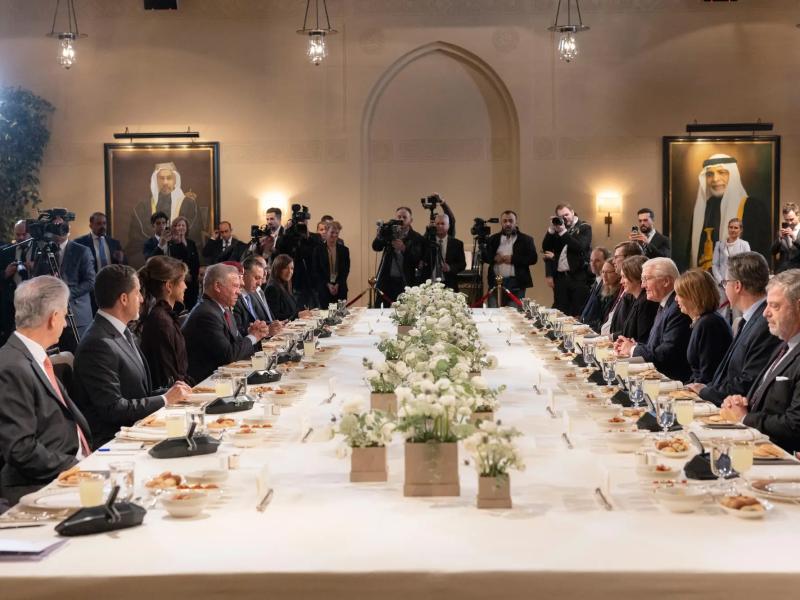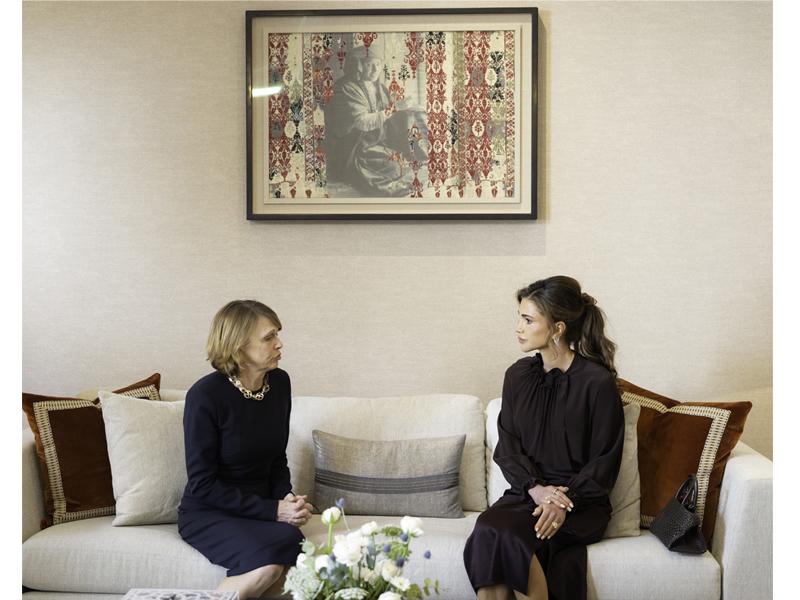(Office of Her Majesty, Press Department – Oslo) Addressing a high level Education for All summit in Oslo, Norway, Tuesday, Her Majesty Queen Rania Al Abdullah called on leaders from all sectors to prioritize girls’ education.
Lauding Prime Minister Stoltenberg’s “unfailing leadership – financially and morally”, Queen Rania also highlighted the efforts of Canada, the UK, the Netherlands, and Sweden for championing the right of girls to go to school. “It isn’t often that the logic behind a policy is so clear. But when it comes to the value of educating girls, the evidence speaks for itself,” she said to an audience including the Norway’s Queen and Crown Prince, the President of Senegal, and UNESCO Director-General Koïchiro Matsuura. Despite the world community’s promise eight years ago to achieving the Millennium Development Goals – including universal access to primary education by 2015 – Her Majesty warned that “justice still eludes 41 million girls”. “How can we possibly justify throwing so much human potential away? Why are the daughters of poor men and women less deserving than our own? How can we allow an accident of birth to determine their fate,” she asked. Highlighting Jordan’s progress towards universal primary education, the Queen warned that many countries in the Middle East are sadly not on track to achieving this vital MDG and need the attention of the world community. “There are 5.7 million Arab children out of school. Two-thirds of them live in the region’s least developed countries, including Yemen, Djibouti, Sudan, and Mauritania. And within those countries, almost three-in-four children not in classrooms are girls,” she said. Girls throughout the world “lose out to poverty and cultural biases because families invest in sons over daughters when they struggle to survive. They leave education early because many schools fail to provide sanitation facilities that give girls the privacy and dignity they deserve. They lack female role models to emulate, to inspire them, to help them imagine what they can become,” she said, “All of these challenges are difficult, but not one is insurmountable.” Highlighting many successful education models in the Middle East – from Yemen’s National Strategy on Girls’ Education to Egypt’s girl-friendly schools, and Morocco’s National Plan of Action – Queen Rania noted that the exist in countries throughout the world. “Imagine how many lives could be lifted if these dollars and projects reached every child,” she said as she encouraged the leaders to prioritize the issue of girls’ education and work together to fulfill their promises towards the Millennium Development Goals. In a press conference before the event, Her Majesty stressed that in such times of global duress where “conflict and violence have shattered lives from Ramallah to Darfur to Mumbai; cyclones, earthquakes, and other natural disasters brought entire communities to their knees; fuel and food prices have pushed 100 million people into poverty; and now a financial crisis chokes the trade and aid that keep them alive”, it is necessary to keep education on the top of the global agenda. Calling education “more than a basic human right,” the Queen said it is “a passport to economic growth a shield against malnutrition and disease a stepping stone toward peace. It’s the driving force behind achieving most of the other Millennium Development Goals.” While in Oslo, Her Majesty met with co-chairs of the UN Girls’ Education Initiative (UNGEI) discuss UNGEI’s efforts in education. UNGEI was launched at the World Education Forum in 2000 by the UN Secretary General to assist national governments as they fulfill their responsibilities towards education and gender equality for all children. Queen Rania, who was appointed UNICEF’s first Eminent Advocate for Children, also met with key UNICEF representatives to discuss their latest findings on education, and specifically girls’ education. ### Queen Rania is a keen advocate for promoting universal access to primary education. Believing strongly that enhancing education is vital for bridging gaps, giving people hope, improving lives and ensuring stability throughout the world Her Majesty has launched, championed and given patronage to a number of initiatives in education and learning throughout her years as Queen. Most recently, Queen Rania launched her Madrasati (“My School”) initiative, a public-private school adoption initiative aimed at refurbishing Jordan’s public schools. The first phase of the initiative, which began in April 2008, has focused on rebuilding the infrastructure of 500 dilapidated schools around Jordan.



